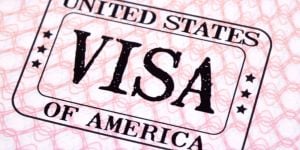
Having a baby in the United States as an expat comes with costs, various healthcare logistics, and potential legal considerations. While you do not need to be a US citizen or resident to give birth in the US, it's really important to plan ahead and understand your situation when it comes to health insurance, birth options and visa compliance. The US does offer high-quality care for mothers and babies, but access (and affordability) vary hugely depending on both your insurance coverage and where you choose to give birth.
Birthright citizenship and changing policies in the US
One reason that might motivate expats to give birth in the United States is that children born on US soil are automatically granted citizenship. The Fourteenth Amendment continues to guarantee birthright citizenship to all children born in the United States, except for the children of foreign diplomats. However, this right is facing scrutiny as President Trump has now issued Executive Order 14160, which attempts to deny citizenship to children born to undocumented immigrants and short-term visa holders. Federal courts have blocked the order, calling it unconstitutional, and it is not currently in effect.
Even though the order is likely to be rejected, US authorities appear to be denying visa applications believed to be for the purpose of giving birth in the country. It is a good idea to remain up to date and informed on any policy decisions that may impact your ability to safely give birth in the US.
The healthcare system and insurance in the US
As you might be aware, the healthcare system in the US can be quite complex and expensive. It's important to have health insurance that covers pregnancy and childbirth, as medical costs associated with giving birth can be significant. Giving birth is a life-changing moment, and you do not want to be worried about the bill you might be receiving rather than the powerful experience of meeting your new baby.
You will have the option of choosing between an obstetrician (OB-GYN) or a midwife for prenatal care and childbirth. Obstetricians are medical doctors who specialize in pregnancy and childbirth, while midwives are trained professionals who provide personalized care and support during pregnancy, childbirth, and the postpartum period. Both options have their benefits, and it's important to research and choose the one that aligns with your preferences and needs. If you have a difficult or complex pregnancy, it will likely be necessary to have an OB-GYN and opt for a hospital birth, as you will be at risk of complications.
Midwives in the USA
Midwives in the USA can be certified nurse-midwives (CNMs) or certified professional midwives (CPMs). CNMs have nursing and midwifery training and can provide care in various settings, including clinics and hospitals. CPMs often work in home or birth center settings and typically have midwifery-specific training.
Although there are approximately 17,000 midwives working in the United States, the country still has one of the lowest midwife-to-birth ratios among developed nations, and maternal health outcomes in the US remain poor. The US actually has the highest maternal mortality rate among high-income nations, with 80% of maternal deaths considered preventable.
Birth setting in the US
You can choose to give birth in a hospital, a birthing center, or at home, depending on your preferences and the level of medical support you desire. As you would expect, hospitals offer comprehensive medical care and a full range of medical interventions, while birthing centers provide a more homelike environment with midwifery care and minimal interventions.
Prenatal care in the US
Regular prenatal checkups are important for monitoring your health and the health of your baby. Both OB-GYNs and midwives can provide prenatal care, but on the whole, midwives often offer a more personalized and holistic approach. There are also other things mothers-to-be can do to improve their birthing experience, like pre-natal yoga and hypnobirthing.
Cost of giving birth in the US
The cost of childbirth in the United States can be a significant financial burden, particularly for those without insurance. In 2025, the national average cost for pregnancy, delivery, and postpartum care is USD 18,865. This includes all related medical services. The cost can also vary depending on the type of delivery. For instance, a vaginal birth with no complications averages around USD 11,000, while a cesarean section without complications can cost up to USD 20,000 in some states.
Out-of-pocket expenses also play a significant role in the overall cost of childbirth. On average, out-of-pocket spending for a vaginal delivery is USD 2,800, compared to USD 3,400 for cesarean births. However, these costs can be significantly reduced with health insurance coverage. Medicaid and the Children's Health Insurance Program (CHIP) currently cover over 40% of all births in the United States, especially for women of color and those in rural areas. Remember, in order to make use of these programs as an expat, you usually need to have lived in the US legally for five years. However, some states will waive this waiting period for pregnant individuals and children under a special federal option. Eligibility depends on immigration status and the policies of your state of residence.
The state in which you choose to have your baby can also impact the cost of childbirth. Currently, the best states to have a baby include Vermont, Rhode Island, Massachusetts, New Hampshire, and Maryland. These states rank highly for healthcare access, family support, and maternity leave policies. The worst-ranked states include Arkansas, South Dakota, Alaska, Oklahoma, and Tennessee, due to lower healthcare outcomes, high costs, and limited family support services.
For those considering alternative delivery methods such as home births, it's important to note that these are often not fully covered by insurance companies. The average cost of a home birth in the United States is USD 4,650, but this can vary depending on the state.
If you don't have health insurance in the United States, you must pay the total amount for all related medical costs. Some hospitals do have payment plans for situations like this, and, in some cases, you may qualify for uninsured patient discounts.
The benefits of giving birth in the United States
As we've mentioned at the beginning of this article, you don't need to be a US citizen or resident to give birth in the United States. Regardless of your residency status, your child will have the right to US citizenship—with the exception of children of foreign diplomats. While a 2025 executive order aims to limit this right, it is not in effect due to legal challenges. This is one of the primary reasons why expats may choose to have their child born in the US.
Moreover, once your child turns 21, you and your other close relatives will become eligible for permanent residence in the United States. US citizens can sponsor their immediate relatives to obtain family-based Green Cards – and it's a common practice for US citizens to move their entire families to the country.
Good to know:
Because of the above-mentioned benefits associated with giving birth in the US, birth tourism (traveling to the US with the intent to have a baby) is quite common. However, US immigration authorities have significantly tightened scrutiny of tourist visas used for this purpose.
Note that even after you become a parent of a US citizen, you will not be able to apply for a family-based Green Card until your child turns 21 and can sponsor your visa application. In the meantime, you must ensure that your stay in the country is lawful and obtain the appropriate visa.
Good to know:
While it is perfectly legal for pregnant women to enter the US, note that you may be asked additional questions regarding the purpose of your trip. You may also be asked to show your health insurance documentation and proof of funds to cover medical costs if you do give birth in the United States.
We do our best to provide accurate and up to date information. However, if you have noticed any inaccuracies in this article, please let us know in the comments section below.











